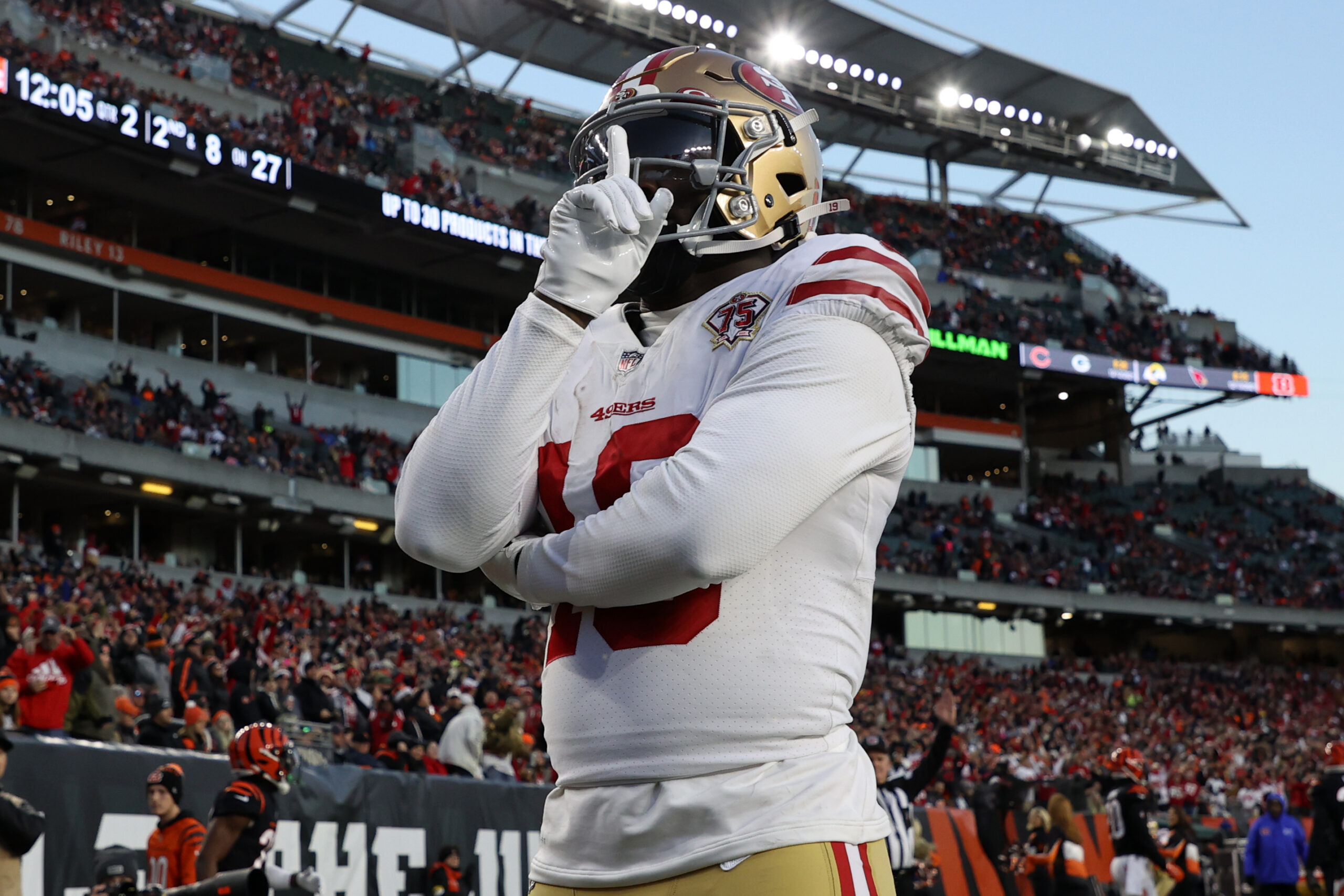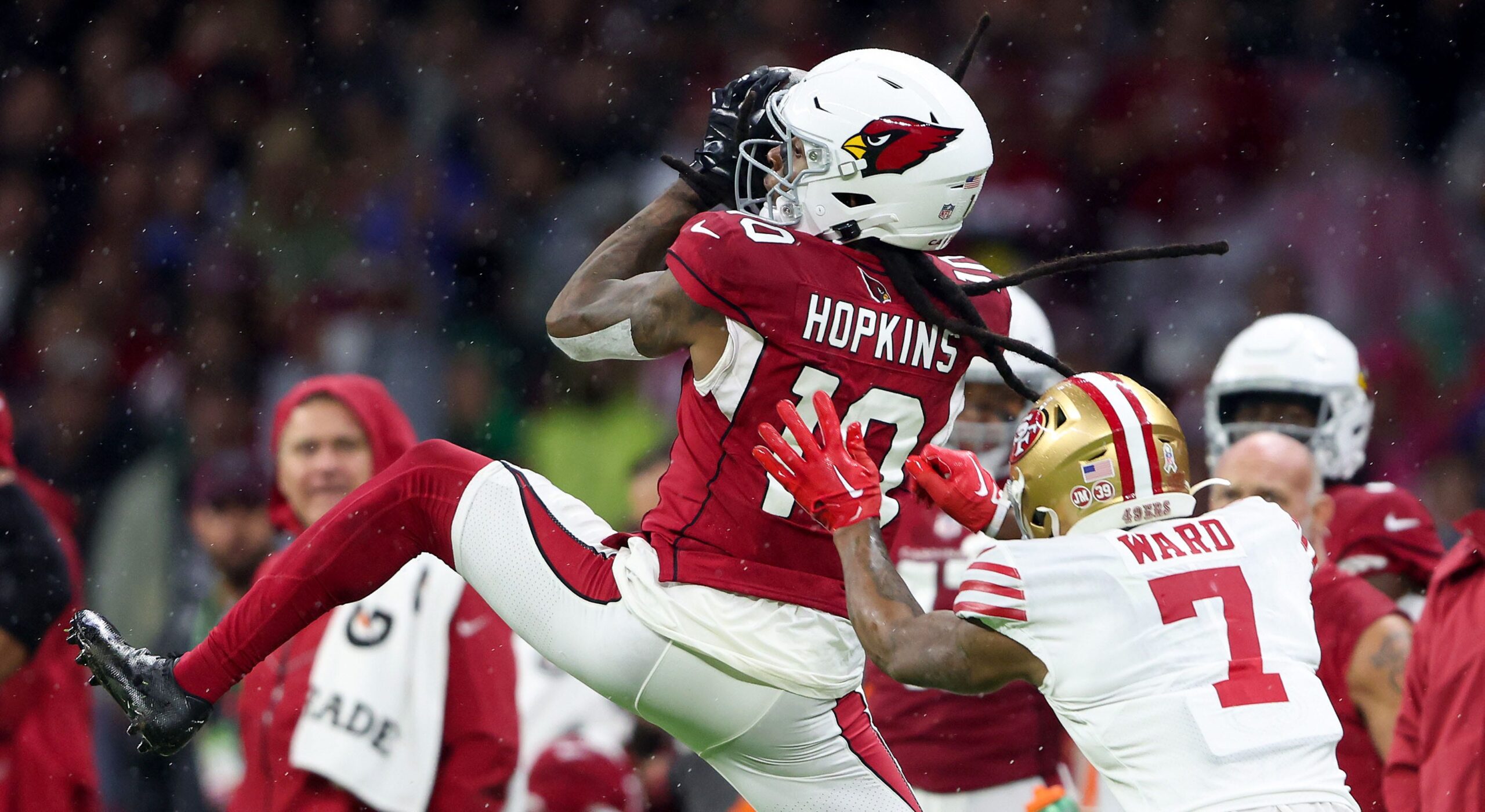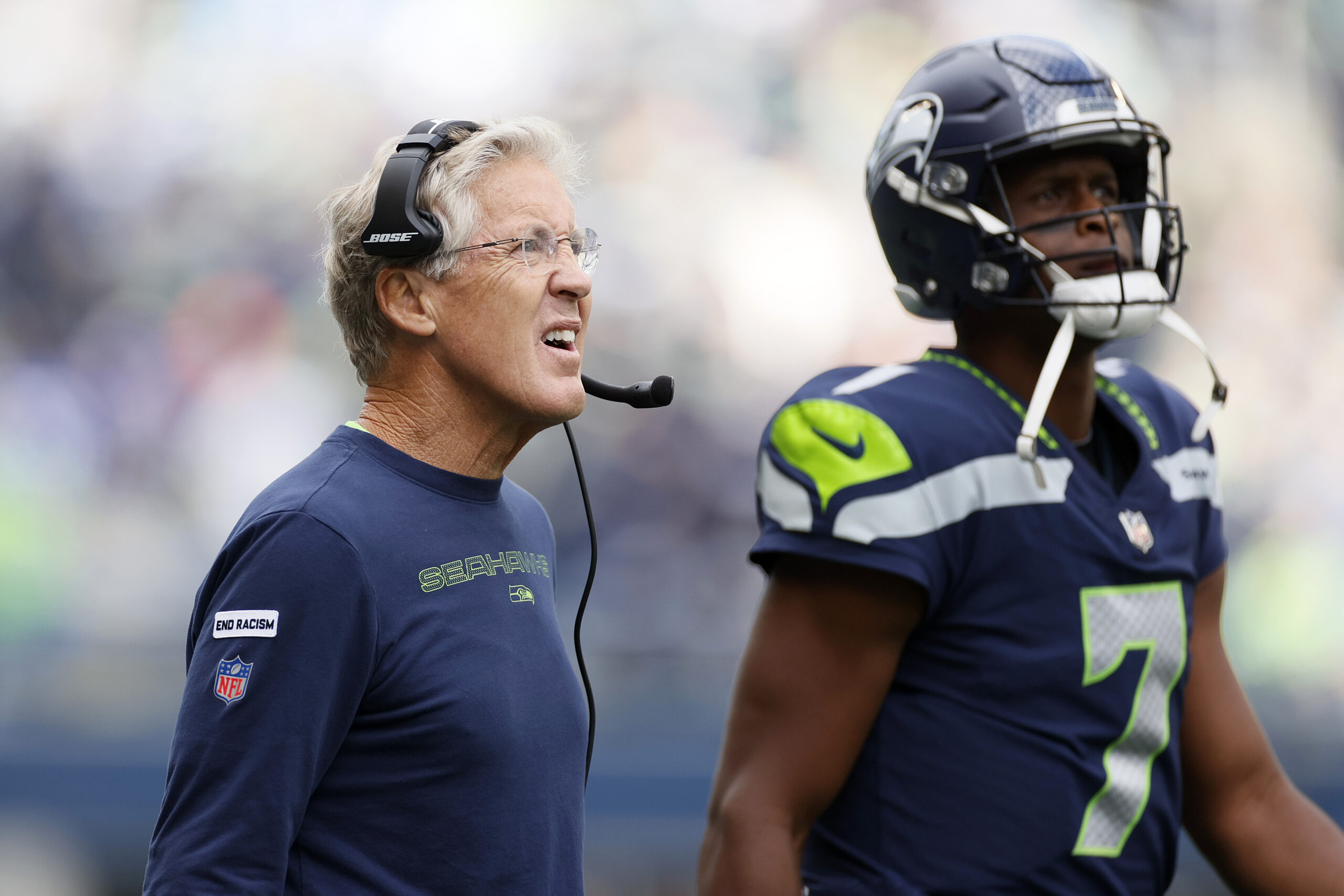Richard Sherman’s approach to the game is preparation-based. Studying game-film for 30 hours per week is nothing extraordinary for him. He can also take physical advantage of the opposition, along with exposing their mental weaknesses as well. His mind is a veritable 12th man, because having a player with his instincts, athleticism and football intelligence ensures that defensively, his team is always in an advantageous position.
Generally, game film can be crucial because tendencies are broken down and, once deciphered, are often the reason a team wins or loses. It also must be noted that his desire to excel is also augmented when his peers disrespect his skills. As he said on NFL Network last year, “Respect deserves respect and disrespect deserves disrespect.”
His inspiration is thus ubiquitous, his fire crowned with glorious fury. When asked if there is a pressure to perform, the two-time All-Pro defensive back, who has already accumulated 20 interceptions in his brief, three-year NFL career, speaks with confidence and vehemently dismisses any indication of pressure, especially with his Legion of Boom teammates at his side.
During an interview with Tiki Barber, he responded, “No. Not at all. Especially when you prepare the way we do, work as hard as we do. It’s not like we’re just going out there and showing up. Aw, we don’t do nothing. We don’t practice. We just show up on game (day) and we’re the best. We go out there and watch tons of film. We know tendencies. We know situational ball. We study the game. We respect the game. We respect it, so there’s no pressure.”
Later in the interview, he explains why he mentions a goal before it’s actually achieved: “If you don’t believe it, if you don’t say…you speak it into existence sometimes. You speak it. You speak confidence. You speak I’m the best and then you become it. (Muhammad) Ali said it best.”
Sherman is motivated to perform at the highest level and has the ability to tune out the background noise, because his biggest pressures are derived from within. Through it all, he understands that our external examination of him will sometimes be inaccurate.
One of the greatest athletes of all time, Hank Aaron, understands and supports Richard Sherman. That’s a huge endorsement because Aaron could be indirectly addressing the racial overtones directed at Sherman, a dynamic he experienced firsthand during his own career, especially during his chase of the legendary Babe Ruth to become Major League Baseball’s all-time home run leader. We all know that Hammerin’ Hank speaks out publicly about as often as the appearance of Haley’s Comet. That the introvert went to twitter to offer support to one of sports’ best extroverts is actually rather amazing. (h/t Vinnie Hardy of tomahawktake.com).
.@RSherman_25 – hang in there & keep playing as well as you did Sunday. Excellent job – you have my support.
— Hank Aaron (@HenryLouisAaron) January 21, 2014
He wants his performance in the NFL to be explained correctly, and understands, as a communications major, why the correct or incorrect usage of words absolutely matters. He was teased for his Advanced Placement-driven vocabulary in school, which probably contributed to his desire to be understood. He’s said his greatest play, before Championship Sunday, was a 4th and 20 catch on Stanford’s game winning drive in a monumental upset of his current coach Pete Caroll’s USC team in 2007.
Considering how many great plays he’s made in the NFL, that he doesn’t allow himself to forget from whence he came, bodes well for his Seahawks future. At Stanford, he asked David Shaw, who was then his offensive coordinator and wide receivers coach, to switch him to cornerback before that catch in 2007, and was denied. He got his wish the next season after asking Shaw again. Persistence leads to assistance. Just make sure you spell his name right.
He wants his legacy to be controlled by his play, not through the words of others who have no idea what it is to be a son of Los Angeles’ Watts and Compton neighborhoods. On the field, his pass deflections becoming picks by his teammates are no coincidence. They are practiced. Perception is simply not reality.
An uninformed perception is actually a very lazy one. If fans were smart, instead of knee-jerk reactions, analyzing players a little more accurately would ensure that water cooler conversations were more grounded in logic.
Sherman’s dad, early on, made him understand that confidence is a tool that one needs to succeed, and in his initial column for Sports Illustrated’s MMQB, he explains how and when that became apparent:
“It wasn’t until my dad coached my team, when I was 11, that I learned you had to be tough to be a great football player. He put me up against a bigger kid in a tackling drill and told me, “Run him over.” All I could think of was, I don’t want to do this, but I did it. I closed my eyes, ran into the guy and did OK—or so I thought.
“Do it again!” my father shouted.
I braced up again. And the guy ran through me, again. That one hurt.
“Do it again!”
This time he ran through me ever harder. My dad came over to me, picked me up off the ground and … threw me down.
“Do it right! Be a FOOTBALL player! Do it again!”
On my fourth try I ran through that kid’s face. Knocked him down. When you’re young you have so many fears. But since that day I’ve never been afraid of anything on a football field.”
Sherman was highly-recruited coming out of high school and chose Stanford, not only because he thought he could be an impact wide receiver in their program, but because of the academic challenge as well. Nothing but A’s were acceptable in his household, and his 4.2 GPA at Dominguez High School is actually is a source of pain because he finished 2nd in his class behind the valedictorian.
It’s also interesting that he became fond of Greek poetry, specifically the Iliad. Reading the iconic work by Homer offered a distinct alternative to his tough surroundings. He witnessed the work ethic of his father, who left the house at 4:00 am (something he still does) to work on a sanitation truck, and the compassion of his mother, who works with disabled youth for California Children’s Services.
During summers going to work with his mom, he helped disabled children, some suffering from muscular dystrophy and cerebral palsy, perform basic exercises that most take for granted. The streets respected his parents. Those that could have enticed him, re-directed him away from the negative elements instead, because they saw a future of promise.
His father joined a gang during his own adolescence. But that experience was Sherman’s gain, as his dad ensured that his children would not follow on those set of misguided footsteps.
In that initial MMQB column, he spoke to his insatiable taste for vengeance when he wrote, “So many teams doubted me, and that disrespect motivates me to this day. It’ll drive me for as a long as I play. Me, the 154th pick? Made no sense then—and it still doesn’t.”
Hmm…an invocation of muses, if you will? Nice. If Homer only knew…Achilles the Seahawk? Sounds about right.
Since many consider the NFL a quarterback-driven league, could it be possible that when an intelligent, yet brash and dreadlocked 3rd year cornerback speaks out in any uncommon way, he’s seen as speaking out of turn?
Sherman is well groomed, he doesn’t do the club thing, simply likes to hang out with his girlfriend Ashley Lillian-Moss and is tremendously well spoken. Did you hear any profanities in the much talked about postgame interview? Of course not, because he was under control, by his standards.
Could it also be possible that by sticking a microphone in front of any athlete directly after making a game saving play, especially the most important play in the NFC Championship and possibly the entire NFL season, we shouldn’t be surprised by his physical reaction in an adrenaline-fueled moment where his team just punched a ticket to the Super Bowl?
Why are we surprised when an athlete talks the talk, when many fans talk trash to each other heading to the fridge to supply the room with another beer? This is football people, not some formal exercise where our nation’s children should be sheltered from reality. The Richard Shermans, Michael Irvins and Deion Sanders’ of the world are part of the allure and why some games are more discussed than others.
So if fans are to fully understand what goes on between the lines, it would be irrationally dismissive to not realize that emotion is a major part of any NFL contest.
Sherman carried a 3.9 GPA at Stanford University on his way to a communications degree (and began work on his Masters), so he’s no stereotypical jock, and because many fans think an athlete should simply shut up and play ball, we’re missing an opportunity to, yet again, learn from a player who is totally utilizing his mind, soul and body to gain everything, on and off the field, while he is capable of doing so.
In his postgame interview, Sherman took the opportunity to drive a point home, a point that was personally important to him. His critical words of Michael Crabtree will ensure that the already heated rivalry between San Francisco and Seattle will thrive in the years ahead.
The question should also be asked, did Sherman use the interview to cement the intent of the Beats ByDre commercial, which aired immediately after the game? Because he was the actual product placement, before the product was advertised. And don’t be surprised when you see him in numerous future advertising campaigns, regardless of the Super Bowl’s outcome. Cue the Diddy and Nas track because that’s what it’s going to be with Sherman, whether you dig him or not.
As great of a record-breaking season that Peyton Manning had in 2013, Richard Sherman grabbed the puppet strings of the dialogue early in 2014, with the spotlight of a Super Bowl appearance shining brightly upon him. Love him or hate him, you are talking about him.
Floyd Mayweather perfected the persona of the mouthy villain and flipped it into an avalanche of wealth as he sits atop the hierarchy of the boxing world. If that’s not intelligent, I don’t know what is.
Modify your perception of what intelligence looks like, because no picture is complete without context. Whether we see Richard Sherman discussing his stamp on the game under a drizzle of Super Bowl confetti, or walking off the field feeling the agony of defeat, he is the context we all need, in a world that is disinterested in context.



